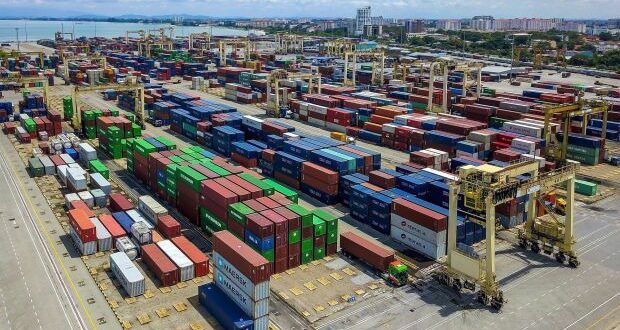GEORGE TOWN: The Penang Freight Forwarders Association (PFFA) saw cargo volumes dropping to record-low levels in 2023, with air cargo shrinking 24% year-on-year to 104,449 tonnes.
The association said it handled 39,341 tonnes of imported cargo and 65,108 tonnes of exported products last year, a 30% and 21% decline, respectively, compared with 2022 figures.
PFFA honorary secretary-general Ali Ahmad told StarBiz that yearly cargo volumes only dropped about 10%, at most.
“Due to weak demand and the impact of high interest rates, business expansion projects, especially for the semiconductor industry, have reached a standstill.
“The weakened ringgit has raised import costs and impacted imports and manufacturing activities in Bayan Lepas,” Ali added.
Finished and semi-finished semiconductor products comprise about 70% of the air cargo handled in Penang.
“This is why when the semiconductor industry is affected, the volume of cargo handled also drops correspondingly,” he said.
The Penang International Airport is an important air cargo handling hub as it manages about 70% of the air cargo in the country due to the presence of multinational corporations and semiconductor manufacturing companies in the state.
“The 70% includes the cargo trucked to Kuala Lumpur and Singapore to be shipped out.
“Sometimes, air cargo from here needs to be sent from Kuala Lumpur as there’s a shortage of air freighters flying out of Penang,” Ali added.
Due to weak demand, the fuel surcharge cost has stayed flat.
The fuel surcharge within Asean remains at 75 sen per kg, while that to Europe stays within the RM2.50 per kilogramme range.
According to Ali, the PFFA doesn’t expect growth in the first half of 2024.
“We can better assess the situation after June,” he said.
The International Air Transport Association (IATA) said air cargo volumes for Asia-Pacific airlines increased by 7.6% in October 2023 compared to the same month in 2022, with carriers in the region benefiting from ongoing growth in international cargo tonne-kilometres on three major trade lanes.
IATA also said global air cargo demand increased by 8.3% in November last year compared to the same month in 2022, while demand growth for international operations was 8.1%.
IATA said the capacity, measured in available cargo tonne-kilometres, was up 13.7% compared with November 2022.
“Most of the capacity growth continues to be attributable to the increase in belly capacity as international passenger markets continue their post-Covid recovery.
“Compared to November 2019 (pre-Covid), demand was down 2.5%, while capacity was up 4.1%,” IATA said.
Meanwhile, the Malaysia Semiconductor Industry Association president Datuk Seri Wong Siew Hai said that the worst might be over for local electrical and electronics companies supporting the artificial intelligence, medical technology devices, automotive, cloud computing and aerospace sectors.
Wong added that manufacturers supporting the sectors are restocking their inventories.
A new World Semiconductor Trade Statistics report also forecasts that annual global sales will increase by 13.1% in 2024 after falling 9.4% in 2023.
 BeritaKini.biz Berita Viral Terkini di Malaysia
BeritaKini.biz Berita Viral Terkini di Malaysia





